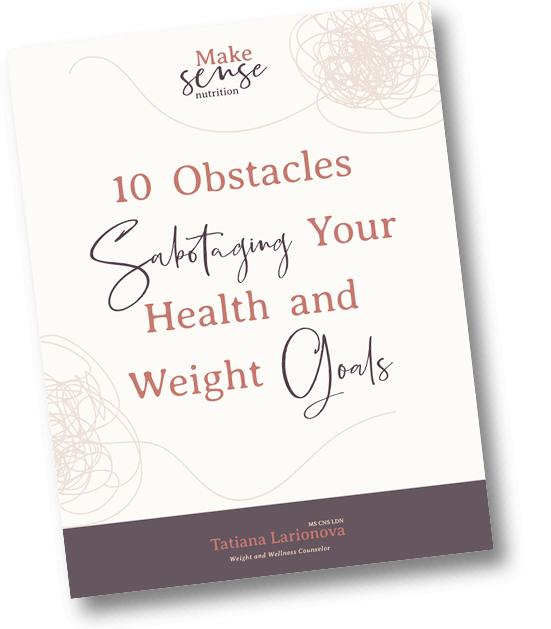Blog
A Word on Processed Food
As a nutritionist, I know that weight gain is a multifactorial process, involving excess energy intake vs. expenditure, genetic and metabolic differences, emotional dependence on food and other physical and psychological conditions. However, when I’m asked to single out one particular reason – without a doubt it is overconsumption of processed foods ????????????????
Processed foods overproduction, easy access to them, long shelf life and last but not least – palatability (high fat and high sugar content make them ever more desirable, and that’s not to mention a myriad of additives for taste, flavor and color) have made them an easy meal option.
What is my problem with processed foods? I do not think they are food…
Even though they are considered GRAS – Generally Recognized As Safe (their ingredients, to be exact), there’s no clarification on how much of it is safe, how often is safe to eat them, in which combinations – are they safe meaning they won’t kill us at once? What about in 5-10-20 years of repeated regular consumption? Are there other effects on our bodies besides weight gain, and why do they cause weight gain in first place?
What science says:
1. Cancer: A cohort study, published in British Medical Journal in February 2018 on consumption of ultra-processed foods (read candy, chips, soft drinks, junk food, and fast food) and cancer risk found that 10% increase in the proportion of ultra-processed foods in the diet was associated with a significant increase of greater than 10% in risks of overall and breast cancer. That’s scary!
2. Type 2 Diabetes: According to a study published in the Proceedings of the National Academy of Sciences, processed foods contribute to the development of insulin resistance due to their concentrations of chemicals called advanced glycation endproducts, or AGEs.
3. Autism: A 2012 study published in Clinical Epigenetics found that high consumption of additives like high fructose corn syrup contributes to mineral deficiencies that might contribute to autism spectrum disorders.
4. ADHD: In a 2011 randomized controlled trial published in the Lancet, children with ADHD who eliminated processed food showed a significant decrease in ADHD symptoms. When the foods were reintroduced, symptoms intensified.
5. Obesity and Weight Gain: a systematic review of 26 studies from Cambridge, that evaluated ultra-processed foods effects on body fat during childhood and adolescence has showed that most of them have found positive associations, meaning consumption of ultra-processed foods leads to weight gain.
And the above is just to name a few, don’t even get me started on cardio-vascular disease, neurodegenerative like Alzheimer’s and Parkinson’s, fatty liver, kidney failure and auto-immune conditions.
Bottom line – they gotta go! Or at least 80% of them – out of your cupboards, drawers and kitchen shelves. Check their Best By dates – do you possibly think food can live that long?! Morgue workers claim that they’ve been using less formaldehyde due to the bodies having higher levels of preservatives in them… “food for thought”…
Tips for reducing processed foods consumption:
1️⃣ Don’t buy them when you go grocery shopping. Period. You know they will always be there – at supermarkets, convenience stores, gas stations. There probably is one close to your house. If you really really want a junk fix – go out and get it then, just don’t keep them at home.
2️⃣ While it’s somewhat easier to reason with adults (sometimes ????), children are much harder to convince that junk food will cause type 2 diabetes or heart disease (eventually). Moderation is key in this case. When your kids ask for a junk fix – bargain with them (“I can only give you this candy with an apple and you’d have to eat some of each item, or no candy at all”) and make sure to serve them at a table, without distractions and accompanied by healthy options (M&Ms and apple slices????, chips and baby carrots????gummy bears and berries????). Not only they will eat less junk, they’ll consume vitamins and other healthy nutrients and fiber which will blunt rapid sugar release into the body and reduce its harmful effects on metabolic response????♂️
3️⃣ Engage in practice of self-care????♀️ – healthy eating is one of the ways to practice it. Once you buy into the concept that you are what you eat, once you start approaching food mindfully, literally minding what you put into your body, once you start paying attention to the way junk food makes you feel – you are less likely to crave crap…
Check oUT OTHER RECENT POSTS
Nutrient Spotlight: Folate
Nutrient Spotlight: Selenium


Hello, I’m Tatiana. I am a Licensed Dietitian Nutritionist and a Certified Nutrition Specialist.
I help people
- normalize their relationships with food,
- peel off the layers of misunderstood physical, nutritional and emotional needs,
- lose weight as a side effect of finding peace with food,
- stop obsessing about food and
- start living the freedom!

FREE DOWNLOAD
What stops you from getting in your best shape?
- Do you spend hours searching for the latest, most effective diet?
- Are you exhausted from using up so much energy and mental space on dieting and weight solutions?
- Are you uneasy around food and can’t seem to trust yourself to eat just enough for your body?
- Do you deal with challenges getting in the way of your healthy eating goals?
I’ve compiled this free tool - a list of 10 Obstacles Sabotaging your Health and Weight Goals that will help you pinpoint challenges you are dealing with that stop you from moving forward.



